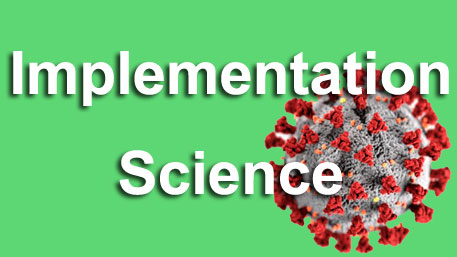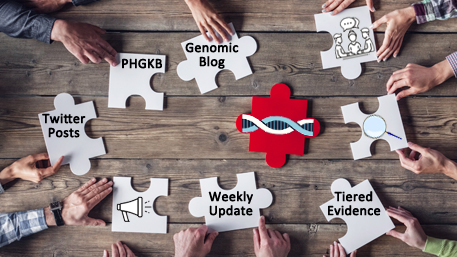Search Results
10 results for cancer
Genomic Medicine is Here: We Need More Data on Implementation and Outcomes

The use of genomic tests in clinical research and practice continues to accelerate in the United States and around the world. For almost a decade, the Genetic Testing Registry (GTR) at the National Institutes of Health has continued to track the growth and development of genomic tests. As of October 28, the GTR lists 76,835
Posted on by 1 CommentPrecision Medicine in Action: How can we make cascade screening for hereditary conditions work best in the real world?

If someone in your family were diagnosed with a genetic condition, would you want to be tested for that condition as well? For some disorders, like Huntington’s disease, for which there are no means available for prevention or cure, the question can be extremely difficult to answer. However, with many other conditions (for example familial
Posted on byAre We Ready for Population Screening for Hereditary Hemochromatosis?

Hereditary Hemochromatosis (HH) is an inherited iron storage disorder in which the body builds up too much iron, damaging tissues and organs. In most people, HH is caused by two copies of a specific change (mutation) in the HFE gene which is most commonly found in people of European ancestry. In the United States, over
Posted on by 1 CommentArtificial Intelligence, Public Trust, and Public Health

As a data-driven agency, CDC has always had highly skilled statisticians and data scientists. As part of the Data Modernization Initiative, CDC is supporting strategic innovations in data science using artificial intelligence and machine learning (Ai/ML). Ai/ML is the practice of using mathematics with computers to learn from a wide range of data and make
Posted on byThe Road Ahead for Genomics Research: From Technology to Population Health Impact

We often reflect on the promise, progress and challenges in the translation of genomics research into population health benefits. A recent commentary in Nature Reviews Genetics featured 12 key scientific challenges and opportunities in the field. Leading scientists took stock of the current state of science and discussed needed research in the next few years
Posted on byThe Long Road to Population-based Genomic Screening

Since 2012, the CDC Office of Genomics and Precision Public Health (OGPPH) has identified three autosomal dominant conditions for which there exist evidence-based recommendations to prevent morbidity and mortality from either cancer or heart disease. Using our evidence-based framework, we have collectively labeled the following conditions as tier 1 genomic applications: 1) hereditary breast and
Posted on by 3 CommentsToward More Precision in Implementation Science in the Age of COVID-19

Implementation science (IS) is “the study of methods to promote the adoption and integration of evidence-based practices, interventions, and policies into routine health care and public health settings to improve the impact on population health.” The various factors that must be taken into consideration in designing, conducting, and evaluating IS studies dictate an inherent “precision”
Posted on byGenetic Counseling in the Time of COVID-19

Genetic counselors play an important role in clinical genetics by helping patients understand their genetic health risks. Due to the COVID-19 pandemic, most clinics and hospitals have restricted in-person delivery of non-essential healthcare services, including genetic counseling, to slow the spread of the virus. However, delaying genetic counseling can be problematic, for example, when genetic
Posted on byImplementation Science to Improve Case Finding, Cascade Screening, and Treatment for Familial Hypercholesterolemia: A Prototype for Precision Public Health Research

Familial Hypercholesterolemia (FH) is a common genetic disorder, affecting more than 1 million people in the United States. FH causes lifelong high levels of low-density lipoprotein cholesterol, and if untreated, leads to a high risk of premature coronary heart disease. Most patients with FH are undiagnosed or inadequately treated with regular or high-intensity statins, leaving
Posted on byCommunication and Information Sharing about Genomics and Precision Health: Opportunities for Improvement

In this blog, we describe our current approach to information sharing based on a recent review of our communication and engagement strategies. In order to improve our approaches to communication, we are asking you, our readers, for feedback—please share your thoughts in the comments section below or send us an email at mailto:genetics@cdc.gov. For the
Posted on by

